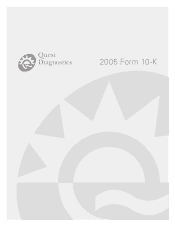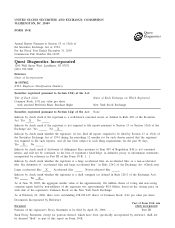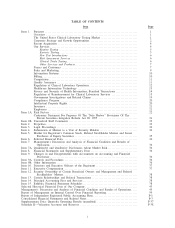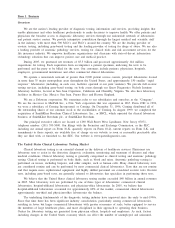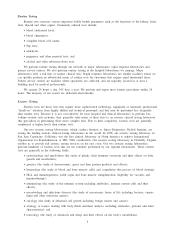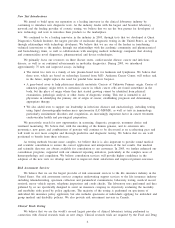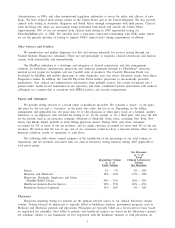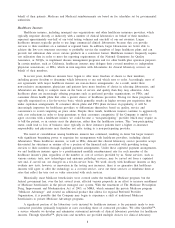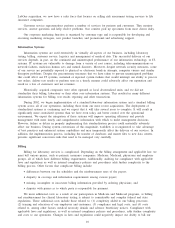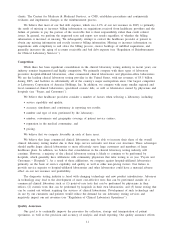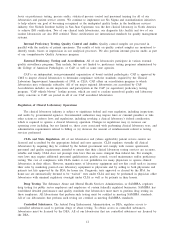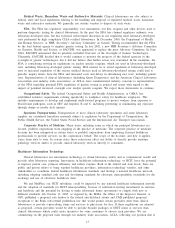Quest Diagnostics 2005 Annual Report Download - page 22
Download and view the complete annual report
Please find page 22 of the 2005 Quest Diagnostics annual report below. You can navigate through the pages in the report by either clicking on the pages listed below, or by using the keyword search tool below to find specific information within the annual report.Routine Testing
Routine tests measure various important bodily health parameters such as the functions of the kidney, heart,
liver, thyroid and other organs. Commonly ordered tests include:
•blood cholesterol level;
•blood chemistries;
•complete blood cell counts;
•Pap tests;
•urinalyses;
•pregnancy and other prenatal tests; and
•alcohol and other substance-abuse tests.
We perform routine testing through our network of major laboratories, rapid response laboratories and
patient service centers. We also perform routine testing at the hospital laboratories we manage. Major
laboratories offer a full line of routine clinical tests. Rapid response laboratories are smaller facilities where we
can quickly perform an abbreviated menu of routine tests for customers that require rapid turnaround times.
Patient service centers are facilities where specimens are collected, and are typically located in or near a
building used by medical professionals.
We operate 24 hours a day, 365 days a year. We perform and report most routine procedures within 24
hours. The majority of test results are delivered electronically.
Esoteric Testing
Esoteric tests are those tests that require more sophisticated technology, equipment or materials, professional
“hands-on’’ attention from highly skilled and technical personnel, and that may be performed less frequently
than routine tests. Because it is not cost-effective for most hospital and clinical laboratories to perform low-
volume esoteric tests in-house, they generally refer many of these tests to an esoteric clinical testing laboratory
that specializes in performing these more complex tests. Due to their complexity, esoteric tests are generally
reimbursed at higher levels than routine tests.
Our two esoteric testing laboratories, which conduct business as Quest Diagnostics Nichols Institute, are
among the leading esoteric clinical testing laboratories in the world. In 1998, our esoteric testing laboratory in
San Juan Capistrano, California, was the first clinical laboratory in North America to achieve International
Organization for Standardization, or ISO, 9001 certification. Our esoteric testing laboratory in Chantilly, Virginia
enables us to provide full esoteric testing services on the east coast. Our two esoteric testing laboratories
perform hundreds of esoteric tests that are not routinely performed by our regional laboratories. These esoteric
tests are generally in the following fields:
•endocrinology and metabolism (the study of glands, their hormone secretions and their effects on body
growth and metabolism);
•genetics (the study of chromosomes, genes and their protein products and effects);
•hematology (the study of blood and bone marrow cells) and coagulation (the process of blood clotting);
•HLA and immunogenetics (solid organ and bone marrow transplantation; eligibility for vaccines and
immunotherapy);
•immunology (the study of the immune system including antibodies, immune system cells and their
effects);
•microbiology and infectious diseases (the study of microscopic forms of life including bacteria, viruses,
fungi and other infectious agents);
•oncology (the study of abnormal cell growth including benign tumors and cancer);
•serology (a science dealing with body fluids and their analysis, including antibodies, proteins and other
characteristics); and
•toxicology (the study of chemicals and drugs and their effects on the body’s metabolism).
5





